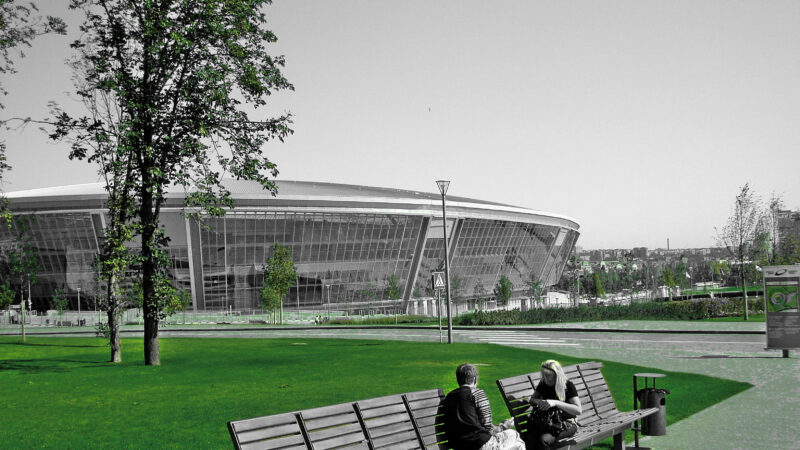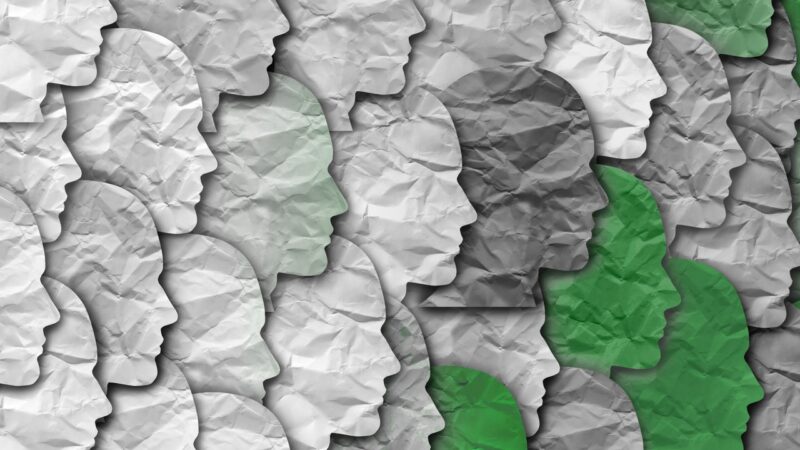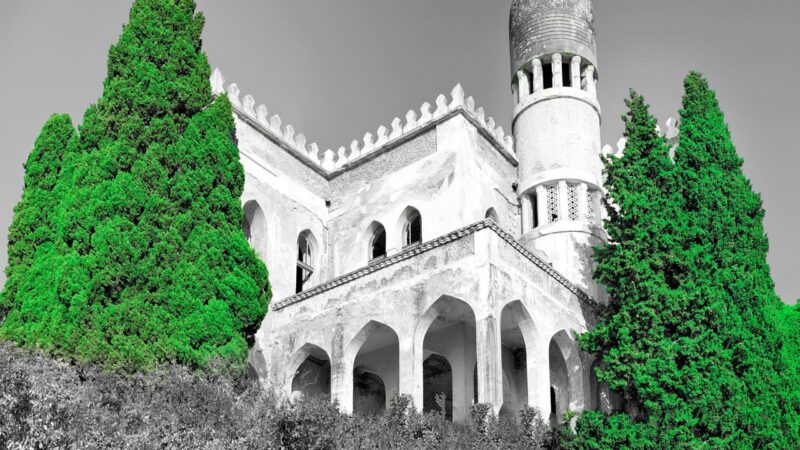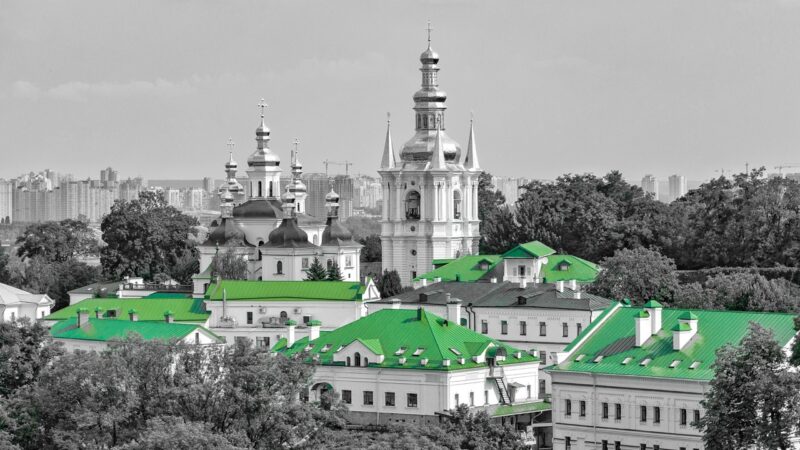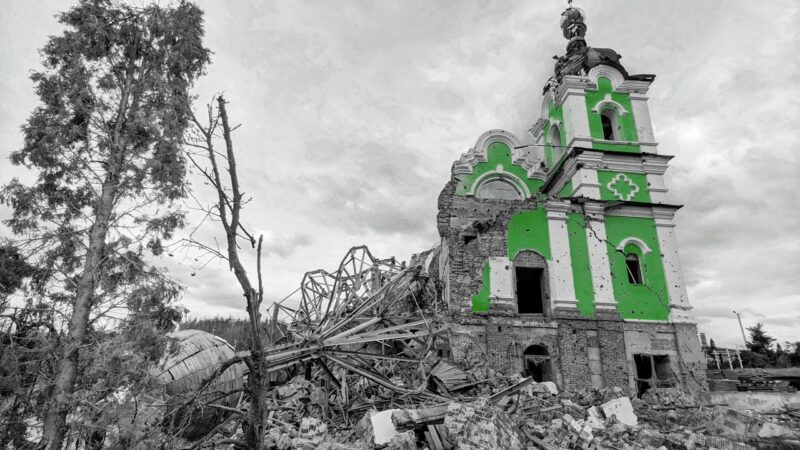Ukraine’s path toward peace: Women in politics, security, and peacebuilding
Gender equality is still regarded as a novel term in Ukrainian society, and feminism mostly carries a negative connotation. Traditional gender stereotypes and patriarchal attitudes still persist in the country, where men are considered to be the primary breadwinners and decision-makers. In Ukraine, women make up almost half of the labour force and simultaneously carry the load of domestic chores. It is also women who predominantly take on the main responsibility for childcare.
Ukrainian women actively participate in public life, drive change, and advocate for the values they respect, serve on the front lines of the war in Eastern Ukraine, and help to curtail the spread of COVID-19 across the country. Since Russia invaded the Donbas in 2014, Ukrainian women have been alongside the men, taking on various roles as volunteers, fighters, decision makers, and community leaders. These roles can be grouped into three areas of women’s involvement that will be explored below: political engagement, security sector, and peace building.
Women were eager to participate in politics during both revolutions of 2004 and 2014. While during the 2004 Orange Revolution women were mostly involved in supporting male protesters and activists, in 2014 they vocally led the Revolution of Dignity and advocated for political transformations. Subsequently, female civil society leaders managed to cross over to participating in the parliament and public service. Nonetheless, the rate of political participation of women in Ukraine remains drastically low: women have been holding 20.8 per cent of seats in the parliament since 2019, compared to 11.58 per cent in 2018, according to the Inter-Parliamentary Union.
Currently, in the Verkhovna Rada of Ukraine women account for 22 per cent of the deputies in the faction of the “Servant of the People” political party of President Zelenskyi, 30 per cent in the faction of the “European Solidarity” party of former President Poroshenko, 45 per cent in the faction of the “Holos” party, and only 17 per cent in the only faction led by a woman, the “Batkivshchyna” all-Ukrainian union of former Prime Minister Tymoshenko.
Female parliamentarians have been active in the reform process in Ukraine, including in the peace and security sector, through assuming leadership roles and introducing relevant laws.
Oksana Syroid (2014–19) and Iryna Herashchenko (2016–19) were the first women to serve as deputy speakers of the Verkhovna Rada of Ukraine.
Eka Zguladze, the First Deputy Interior Minister from 2014 to 2016, proved to be an effective reformer in Ukraine. Based on her prior experience in Georgia, Zguladze managed to reform the Ukrainian police and create a brand-new system of law enforcement.
Elected to the Verkhovna Rada in October 2014, Viktoria Siumar tabled legislation to regulate the use of correct terminology regarding the war in the Donbas. Siumar urged the Ukrainian government to stop calling the Donetsk and Luhansk people’s republics unrecognized states, as it is in line with the Russian rhetoric.
When Oksana Yurynets assumed the role of head of Ukraine’s permanent delegation to the NATO Parliamentary Assembly (PA) in 2017, she publicly announced that her main goal was to bring a session of the NATO PA to Ukraine. Indeed, the session was planned to take place in Kyiv this year, but due to the global health crisis the event was postponed.
At a panel discussion on the margins of the Third Committee (Social, Humanitarian & Cultural Issues) of the UN General Assembly, 74th Session, in 2019,[1] the former head of the Kharkiv Oblast State Administration, Yuliia Svitlychna (2016–19), shared the experience of her native region to highlight the importance of women’s participation in public life: “While in 2015 women held only 19 per cent of the seats on the Kharkiv Oblast Council, the most recent local elections saw the proportion of women rise to 40 per cent. At the same time, Kharkiv oblast has thrived economically and remained one of the most peaceful regions in Eastern Ukraine despite the aggression from the Russian Federation in the Donbas—which has brought various challenges, including the arrival of 200,000 IDPs and the creation of an unstable political situation that resulted in a decline in foreign investment. This shows a direct link between peacefulness, economic prosperity, and inclusivity.”
In the security sector women also have a valuable role to play. The U.S.-Ukraine Foundation has calculated that than 50,000 women are currently involved in protecting Ukraine from the hybrid war waged by the Russian Federation. The number of female members of the Ukrainian Armed Forces, shoulder to shoulder with fellow male combatants, has doubled compared to pre-war conditions. Women gained the right to serve in combatant positions in the Ukrainian army, such as snipers, intelligence officers, and commanders of military hardware, in 2016.
In a project of Hromadske International, stories are told of women soldiers who took part in the war in eastern Ukraine—such as Adriana Susek, who fought at war “the same way men did,” liberating eleven cities and taking part in prisoner rescues.[2]
Launched by Deputy Minister Zguladze in 2015, the National Police of Ukraine (which replaced the Soviet-era Militsiia) has one of the best gender ratios across the world. Women’s representation in law enforcement has a unique complementary value. The National Institute of Justice of the U.S. Department of Justice finds that women are less likely to use excessive force while on a mission; they are indispensable in addressing violence against women and sex crimes and for improving relations between police and the community.[3] Women’s real strength is in their compassion and tolerance, their ability to understand and relate.
The OSCE’s Special Monitoring Mission to Ukraine (SMM) informs about the similar advantages of women’s involvement in its peace and security efforts in Donetsk and Luhansk oblasts: “There have been instances when we approached local residents and asked them to share their concerns, including about human rights, and they specifically asked to speak with a female monitor.”[4] Reporting also benefits from women’s representation in the team’s units, as it ensures that both men’s and women’s contributions and concerns are captured in mission reports and activities later provided to the international community.
To guide security efforts and make this sector more inclusive, in 2016 Ukraine became the first country to launch a National Action Plan (NAP) in supporting implementation of the UN Security Council Resolution (UNSCR) 1325 on Women, Peace, and Security (WPS) during the armed conflict. The NAP divides the WPS responsibilities among Ukrainian ministries based on six pillars of action: (a) peacekeeping and peace-protecting activities; (b) women’s participation in peace building; (c) prevention of conflicts and violence; (d) protection of women and girls affected by conflicts; (e) provision of assistance and rehabilitation of people affected by conflicts; and (f) monitoring the NAP for implementation of UNSCR 1325 until 2020.
The NAP is also an essential mechanism to ensure women’s protection in conflict and post-conflict realities. Many women are subjected to domestic violence in their homes, violating their fundamental right to security of person, which was criminalized only in early 2019 and still remains widely underreported. The Ukrainian non-governmental organization La Strada has been coordinating a hotline since 2014 for people seeking help after experiencing domestic violence, human trafficking, and gender discrimination. According to La Strada, during the first year after the conflict began, the number of calls increased by 30 per cent. One of the main factors that impacted the increase was the rise in alcoholism among veterans and male internally displaced people (IDPs).
As the conflict in the Eastern corner of the country enters its seventh year this spring, over 1,512,000 Ukrainian citizens were forced to flee their homes to seek better life and employment, according to the IOM. Female IDPs are at increased risk of human trafficking, sexual violence, and survival prostitution. Despite potential risks, women are more likely than men to look for job opportunities in the host communities and adapt faster to the new environment. The latest survey of IOM shows that among those IDPs who have been actively seeking employment, 21 per cent are men and 79 per cent are women.[5]
In peace building, women are key to making peace sustainable. It is internationally recognized that women’s participation in peace efforts and negotiation processеs increases the sustainability of peace. According to the International Peace Institute, when women participate in a peace process, the resulting agreement is 35 per cent more likely to last for at least 15 years.
Despite this evidence and clear advantages of their representation, women are largely excluded from the formal peace process in Ukraine, in both the Normandy Format (Ukraine, Germany, France, and Russia) and the Trilateral Contact Group on Ukraine (Ukraine, OSCE, and Russia). So far, only two female high-level representatives from Ukraine participated in the Minsk peace process. The first woman is Iryna Herashchenko, the Ukrainian president’s Humanitarian Envoy at the Minsk Agreement negotiations regarding the war in the Donbas. The second woman is Olha Aivazovska, chairperson of the board of the civil society organization Opora, who serves as a subgroup policy expert in the Trilateral Contact Group.
However, as the Minsk process lacks an official mechanism to bridge the peace building activities of non-governmental actors, including women’s groups and organizations, with the formal peace process, civil society expertise and understanding of the situation on the ground does not inform decision making at the highest level.
In Ukraine, a wide range of non-governmental organizations working in the area of peace building are led by women. Not being involved in the official peace process, many civil society organizations are looking for other ways to participate and conduct mediation, dialogue-focused, media programming, and capacity building initiatives at grassroots, regional, and national levels in cooperation with international partners. Organizations such as the Ukrainian Women’s Fund create programs aimed at facilitating mutual understanding between citizens from Eastern Ukraine and the rest of the country; the International Centre for Policy Studies carries out dialogue-building initiatives between women from Ukraine and from Russia.
All of the above-mentioned cases of women’s participation confirm that improved women’s engagement in political, security, and peace building efforts demonstrably contributes to achieving peace in Ukraine. As an enabling factor, gender equality should be placed at the centre of these efforts. To progress further and unleash the full potential of women as equal members of society, all barriers to women’s participation in non-traditional sectors, both formal and informal, should be lifted. Women should be able to decide for themselves what role to take on—politician, soldier, or caring homemaker.
Let us make gender equality a commonly used term in the Ukrainian vocabulary and each and every Ukrainian a proud feminist. This will advance the peace efforts and well-being throughout society.
Daryna Onyshko holds an M.A. in Political Science from the University of Warsaw and a B.A. in International Relations from the University of Wrocław. She is an alumna of the Euro-Atlantic Association Academy and the European Academy of Diplomacy. Onyshko is also an OSCE & UNODA Peace and Security Scholarship recipient. Her academic interests include the theory of democracy, international security, and inclusion of women in decision making.
[1] https://community-democracies.org/?p=8368
[2] https://en.hromadske.ua/posts/ukraines-invisible-female-fighters
[3] https://www.ncjrs.gov/pdffiles1/nij/252963.pdf
[4] https://www.osce.org/stories/connecting-gender-equality-to-peace-and-security
[5] https://www.iom.int/news/iom-survey-shows-displaced-women-ukraine-desperate-work

